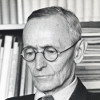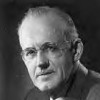“ No one can desire to be blessed, to act rightly, and to live rightly, without at the same time wishing to be, act, and to live—in other words, to actually exist. ”
Baruch Spinoza, Ethics (1677). copy citation
| Author | Baruch Spinoza |
|---|---|
| Source | Ethics |
| Topic | desire words |
| Date | 1677 |
| Language | English |
| Reference | |
| Note | Translated by R. H. M. Elwes |
| Weblink | http://www.gutenberg.org/files/3800/3800-h/3800-h.htm |
Context
“But that a man, from the necessity of his own nature, should endeavour to become non—existent, is as impossible as that something should be made out of nothing, as everyone will see for himself, after a little reflection.
PROP. XXI. No one can desire to be blessed, to act rightly, and to live rightly, without at the same time wishing to be, act, and to live—in other words, to actually exist.
Proof.—The proof of this proposition, or rather the proposition itself, is self—evident, and is also plain from the definition of desire. For the desire of living, acting, &c., blessedly or rightly, is”
source



